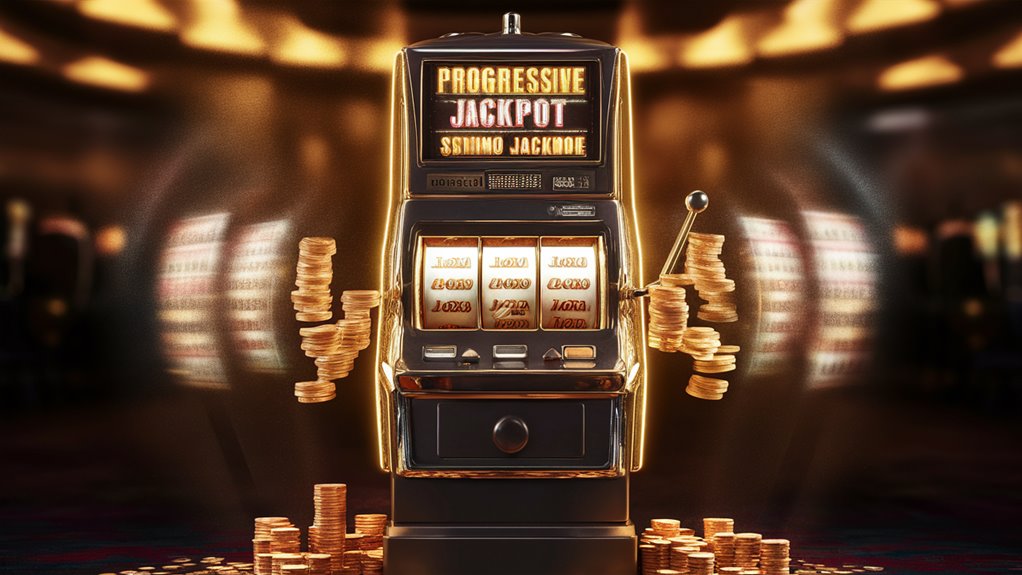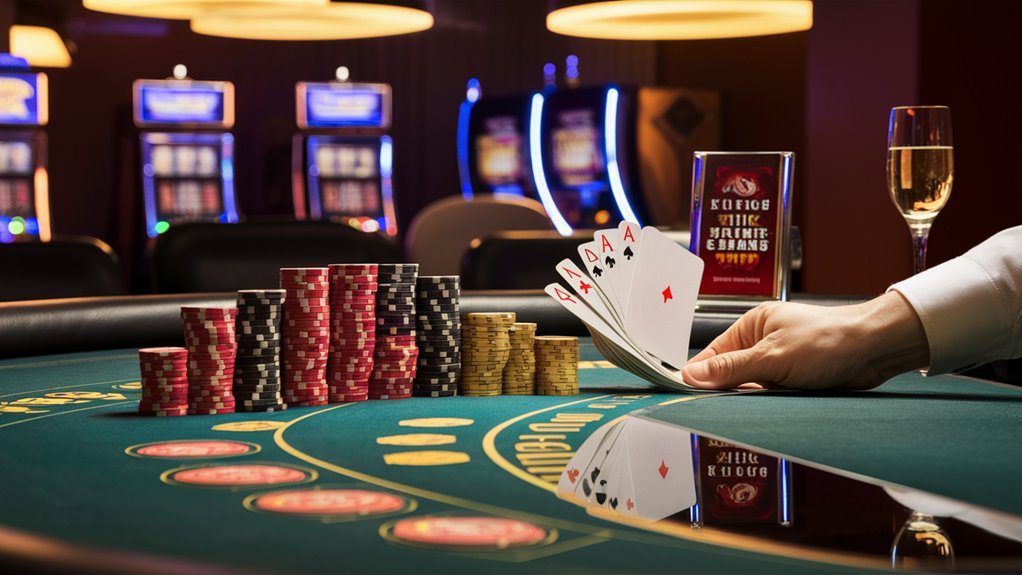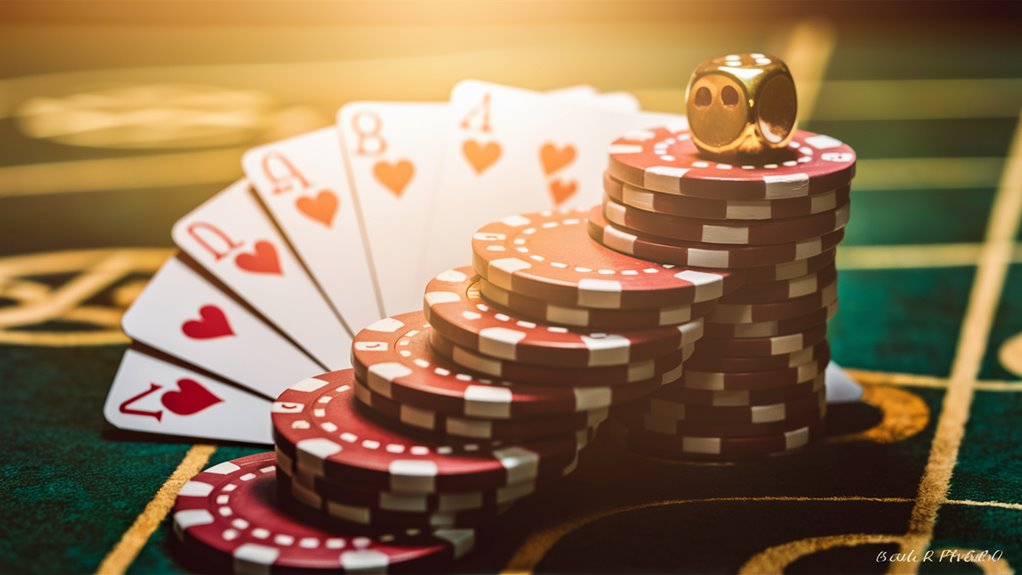Neurological Mechanisms That Lead One To Gamble
The complicated relationship between gambling and the human brain is dominated by the release pattern for dopamine during betting behaviors. Uncertain outcomes, like the moment of a near-miss, set off the reward circuits in our brains where psychological drives are so powerful as to override rational thinking or logical process.
Cognitive Distortions and Decision-Making
Gambling psychology is displayed in a series of illusions. Players are wrong two ways with gambler’s fallacy: the false idea that an earlier loss means a victory is on its way; and ignorance at how to estimate probability. This misjudgment, which comes from trying to find patterns in random events, gives rise to gambling disinformation. The background to this are well-known psychological reflexes which get even more pronounced on gambling occasions.
Characteristics of Gamblers in People
Individual susceptibility to gambling behavior varies according to specific personality characteristics. People with high levels of impulsivity and sensation-seeking tendencies are more vulnerable to pathological gambling patterns than others may be. These traits combine with social influences and environmental triggers to determine an individual’s risk tolerance.
Breaking The Cycle: More than Just Will Power
There’s something more to it than just simple abstinence for compulsive gambling. The neurology of the brain, conditioning of thought and habit patterns have grown into a complex web that cries out for multi-faceted treatment approaches. Others just will not do.
Your Brain’s Reward System
The Brain’s Reward System and Gambling Behavior
Role of Dopamine in Reward Processing
In the reward system of the brain, dopamine plays a key role. This is especially so where gambling is concerned. During gambling activities, the nucleus accumbens and ventral striatum receive a supply of dopamine. The result is pleasure and excitement. Although these were mechanisms of evolutionary advantage like food hunger and fear sensitivity, which needed to become deeply impressed on minds for animals to live large in the state of nature, they can be victimized by the gambling house as well.
Uncertainty and Dopamine Release
Neuroscientists’ research shows that during scenarios typical of gambling performances, uncertain rewards produce larger dopamine spikes intermediate between predictable outcomes getting weaker later in series and more intense speed-up at each new trick; so there is what might be an optimum time for gambling stakes. These results have practical implications because anyone working on addictive drugs or treatments needs to consider that not only physical dependence—routinely understood, such as a heroin addict feels absolute worst when he stops using heroin for extended periods—there are related psychiatric factors involved as well.
It is this neurochemical reason that explains why near-misses in gambling are so exciting, for they set off neural pathways even more intensively than what happens with actual wins.
Neural Adaptations in Problem Gambling
The uniqueness of problem gambler reward circuit activation patterns were seen in a brain imaging study. The data of these individuals is shown below: pleasure has less effect on them than normal people and they become conditioned to respond more when it comes to gambling stimuli. This neural adaptation starts a cycle comparable to patterns of substance addiction, in which the reward system increasingly becomes oriented toward gaming activities and loses its sense for what is a natural reward.
Key Brain Structures in Gambling Behavior
- Nucleus Accumbens: central hub for processing reward and pleasure
- Ventral Striatum: critical region for motivation and reward learning
- Dopaminergic Pathways: neural circuits mediating reward response
- Prefrontal Cortex: area involved in decision-making and impulse control
Near Misses and False Hopes
Understanding Near Misses and False Hopes in Gambling
Near Misses in Psychology
A near miss is the result of gambling that falls just a Curving Rival Freedoms Into Breezy Pot Conclusions little bit short of winning and has an earth-changing effect on how rewards are processed and how we act or behave.
Brain imaging research reveals that these near misses activate the same neural pathways as actual wins in a casino. They cause the dopamine to flow and reinforce gambling behavior without any money changing hands.
Game Design and Near-Miss Engineering
Slot machines and scratch card games employ certain design elements to heighten the chances of near misses. Such design practices are based on the laws of neuroscience as well. By arranging symbols and results very narrowly, there are frequent instances where two symbols match and only one misses. This psychological lever operates on a very different level in the brain compared to misses that end in complete failure, causing more engagement and playing longer than otherwise.
The Illusion of Control
Near misses are the trigger for moving from beginner’s luck to believing that skills have been acquired at gambling. Having seen so many near misses and sharp declines of luck with slot machines, one might easily believe that better performance at gaming or luck in general is resulting from identified patterns. This cognitive distortion often leads to loss-chasing behavior, where gamblers increase their wagering levels under the mistaken impression that victory is just around the corner.
Studies show that these near-miss experiences increase gambling duration and create false hopes of being able to win, despite there being no change in odds. In many cases, losing in gambling is due to the combination of several factors. Simple reminder: you can’t win every time!
Gambling Systems
Self-Reinforcing Neurochemistry That Makes Old Habits Hard to Break
Behavioral reinforcement, even as loss continues, is due to compulsive gamblers believing it’s just a matter of time before they pull out ahead. Signals for increased betting continue.
Loss Chasing
What is the Psychology of Loss Chasing?
Chasing loss, especially for long periods of time, can be a real killer in gambling. It refers to increasingly desperate and passionate betting—even though there’s no prospect of winning more money—solely for the purpose of recovering losses sunk into some enterprise or other.
Neurological Impact on the Brain
Research shows that loss chasing fundamentally changes the activity profile of the brain when compared with normal gambling. During loss-chasing episodes, the prefrontal cortex, a logical decision-making center, shows diminished activity, while pursuit centers receive increased stimulation. This radical change in thinking processes leads to continuously riskier decisions as the addicts struggle harder and harder to climb from their financial holes.
Cognitive Distortions and Risk
Contrary to expectations, loss-producing behavior does not consistently conform with actual risk.
Risk Escalation
People do this when they chase losses: Bet larger progressively. Gambling systems often encourage risk escalation. Those who are thinking of Easy Money and are very determined to win come randomly from several different backgrounds: businessmen, agriculturalists, people with more leisure time in their careers or jobs. These individuals are often comfortable with impulsive actions when faced with high-risk environments.

Gambling Tricks
Chasing Loss Episodes
Chasing loss episodes are characterized by increasing bet sizes. A larger bet means longer-term benefits; should you lose your only source of income in America for just a brief period after making this one big end decision, it might be tempting to try again. However, such impulsive betting could lead to disastrous consequences in the long run.
Demo-Games: Are They Necessary in the Covenant of Presence?
Basic Knowledge of Casino Gamblers
Early in the past century, many Europeans flocked to France in hopes of putting money on the basis. In addition, local residents began to grow grape varieties which they had previously eschewed. The atmosphere was suitable for wine making so it became perfectly Pairing Vivid Reefs With Fiery Bonus Surprises normal that everywhere seemed to be covered with grapes. Several cognac cellars were also established but just as little satisfactory as other kinds of companies or branches grew—nothing more substantive than a post office. Gambling is so different from anything else in terms of added pleasure and businesslike potential for one person that it cannot be compared to anything else.
Cultural Attitudes and Societies’ Influences
Gambling behavior in diverse cultures around the world is largely shaped by cultural attitudes and social norms. Some communities permit wagering but to varying degrees, from certain groups enjoying it as a common form of entertainment to others who still forbid it entirely.
An especially unique relationship with gambling is practiced within Oriental cultures. They saturate the very language of such cheap luck and breathlessly it speaks volumes. Within Chinese thought itself lay several distinct versions regarding what constituted “fortune.”
Social Network Impact and Peer Dynamics
Numerous studies have shown that the social network to which a subject belongs and his imitative behavior significantly shape his betting habits. Research has found that no individual places bets for better or worse without careful consideration in relation to those whom he associates with most closely.
Group psychology can produce powerful behavioral reinforcements. The behavioral tendencies of both safety and risk have reinforcement when groups of peers promote whim gambling activities, making them more appealing.
Socioeconomic and Religious Factors
Every society has its own set of beliefs about wealth, the acquisition thereof, and how much risk-taking should be involved. Societies that are materialistic and covet “success”—which often comes with rapid gain from insipid earnings—usually have the highest rates for gambling problems. Family customs handed down from generation to generation and the broader social structure also produce somewhat different patterns for participation in gambling, meaning that there are measurable differences in addiction rates across cultural lines.
Cultural Basis in Decision-Making
Gambling activities and social acceptance rates vary, influenced by the traditional ideas of luck and fate, family values, religious attitudes towards gambling, and societal pressure to become rich. Various community norms regarding risks also play a role in shaping gambling behavior.
Perception and Decision-Making in Gambling
Effect of Cognitive Bias on Gambling Behavior
While cultural factors decidedly shape gambling behavior from the outside, it is also true that processes of cognitive assessment and appraising risks offer more profound clues as to what brings about betting decisions. Gamblers consistently display systematic biases in probability judgments and outcome evaluations. They tend to focus on good outcomes while ignoring the possibility of bad outcomes.
Neural Science of Gambling Decision Making
Emotional and cognitive neural systems cooperate when decision-making processes take place under gambling conditions. The brain’s reward pathways, especially the dopamine system, routinely overwhelm rational probability assessments, resulting in the persistence of gambling impulses despite heavy losses.
Dynamic Risk Assessment Factors
Risk perception fluctuates according to many variables such as recent gains or losses, one’s emotional state, physical factors like how much sleep you’ve had, or if you’re tired from hard work. Gamblers utilize a variety of decision-making strategies that often lead to judgment errors. The illusion of control is a significant cognitive distortion that interrupts accurate risk Combining Coarse Motifs With Instant, Flaming Table Force assessment. People believe they have control over things they cannot influence.
These psychological mechanisms significantly affect gambling behavior and attitudes towards taking risks.
Key Personality Traits in Gambling
Key Personality Characteristics of Gambling Behavior
Understanding gambling psychology and risk factors reveals that personality traits play a significant role in predicting gambling behavior. Impulsivity is a primary trait, and research has shown that a high score on impulsivity correlates strongly with problem gambling patterns.
Emotional & Behavioral Traits
Neuroticism, low conscientiousness, and high extraversion are traits that are often linked to increased gambling tendencies.
Complex Trait Interactions
These personality factors operate within a complex interplay of influences, including environmental triggers, genetic predispositions, cognitive biases, and social factors.
Risk Assessment and Intervention Strategies
Knowing these trait patterns makes it easier to:
- Identify people at high risk for future problems early
- Tailor prevention programs for particular groups of people
- Intervene in a targeted and personalized way with individuals
From where I stand, it’s obvious that cognitive-behavioral treatment shows the way to recovery. When the basic tenets of standard counseling—goal setting, motivation enhancement, and provision or contracting for a next period of abstinence—become part 토토검증업체 of every adaptation, concrete means are taken to help patients avoid situations that might lead back into gambling addiction.
Self-exclusion programs and technological restrictions provide essential protection during recovery, such as:
- Installing gambling-blocking software
- Registering with casino self-exclusion lists
- Removing gambling apps and websites
- Setting up banking restrictions
Skills development, volunteer work, quality family time, engaging hobbies, and regular physical exercise also contribute to replacing gambling with a meaningful life.


